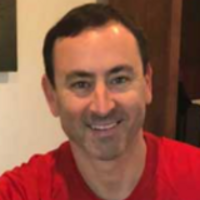Cardiac Anesthesia: What Should Patients Know?
Written By: Allison DeMajistre, BSN, RN, CCRN
Medical Expert: Dominic Emerson, MD, Director of Robotic Cardiac Surgery, Cedars-Sinai, Los Angeles, California
Reviewed By: Adam Pick, Patient Advocate, Author & Website Founder
Published: January 29, 2026
Surgery to repair or replace a heart valve can last hours. Patients have a breathing tube in their throat and are on a cardiopulmonary bypass machine while the heart is stopped. Since patients are asleep for the entire operation, it’s no wonder patients often have many questions about anesthesia. Patients want assurance that they will remain asleep for the duration of the surgery and not feel any pain. However, they also want to know how soon they will wake up and whether they will be safe while under anesthesia.
We recently received questions about cardiac anesthesia from Boheme, who follows the HeartValveSurgery.com YouTube channel. Boheme asked, “What kind of cardiac anesthesia is used during heart valve surgery? How long does the anesthesia work, and how long does it stay in my body?” To answer Boheme’s question, we met with Dr. Dominic Emerson, the Director of Robotic Surgery at Cedars-Sinai in Los Angeles. Dr. Emerson specializes in mitral valve surgery and has performed hundreds of heart valve procedures.
Key Learnings About Cardiac Anesthesia
Here are important insights shared by Dr. Emerson:
- Patients commonly ask about cardiac anesthesia before heart valve surgery. Emerson said he gets many questions from patients who want to know more about cardiac anesthesia before the heart valve operation. “I think the most important thing to remind patients is that it is total anesthesia,” said Dr. Emerson. “Any heart valve surgery that you are going to have, you are completely under for that.” He explained that the surgeons work with an anesthesiology team comprising a small subgroup of anesthesiologists specific to cardiac anesthesiology. “They are regular anesthesiologists who do extra training for cardiac anesthesia, which allows them to focus on our patient population specifically. I think they do a fantastic job of that.”
- What about after the procedure and removing the breathing tube? “After the procedure, the anesthesiologist slowly wakes the patient up by reversing the anesthesia. The breathing tube, which is in for basically all cardiac surgery, will come out pretty quickly. Some patients will have the breathing tube removed before they leave the operating room. Others will have the breathing tube removed pretty soon after they’re in the intensive care unit (ICU). The anesthesia wears off pretty quickly. There’s a little bit of residual sleepiness that continues, but most patients are awake pretty quickly.”
Thanks Dr. Emerson and Cedars-Sinai!
On behalf of Boheme, all the patients at HeartValveSurgery.com, and patients worldwide, thank you, Dr. Emerson, for sharing this valuable information about cardiac anesthesia and for everything you and your team are doing at Cedars-Sinai Medical Center in Los Angeles.
Related Links:
- Patient Webinar: Minimally-Invasive Heart Valve Surgery with Dr. Dominic Emerson
- Surgeon Q&A: Stopping the Heart During Cardiac Surgery
- Patient Awareness: The Recovery from Mitral Valve Surgery
Keep on tickin,
Adam
P.S. For the deaf and hard-of-hearing members of our patient community, we have provided a written transcript of our interview with Dr. Emerson below.
Video Transcript:
Adam Pick: Hi, everybody. It’s Adam with HeartValveSurgery.com, and we’re at Cedars-Sinai Medical Center in Los Angeles, California. I am thrilled to be joined by Dr. Dominic Emerson, who is the Director of Robotic Cardiac Surgery.
Dr. Emerson, it is great to see you again, and thanks for being with me today. We’re here at Cedars-Sinai, and we have a special opportunity with you to answer some patient questions. And this one came in from Boheme from YouTube, and he asks, “What kind of cardiac anesthesia is used during heart valve surgery How does the anesthesia work and how long does it stay in my body?”
Dr. Dominic Emerson: I think that’s a great question. I get a lot of questions about anesthesia and what that’s going to be like, for patients, when we talk about the valve operation. I think the most important thing to remind patients is that it is total anesthesia.
So, any heart valve surgery that you are going to have, you’re completely under for that. There’s an anesthesiology team that manages that. We work with a very small subgroup of anesthesiologists which is the cardiac anesthesiologist. They are a group of individuals that go through extra training. So, they’re regular anesthesiologists and they do extra training for cardiac anesthesia and that lets them to have the ability to really specifically focus on our patient population. I think they do a fantastic job of that.
After the procedure is done, they slowly wake the patient up by reversing the anesthesia. The breathing tube, which is in for basically all cardiac surgery, will come out pretty quickly.
That’s another question that people commonly ask, “How long is the breathing tube going to stay in?” Some patients will have the breathing tube removed before they leave the operating room. Others will have the breathing tube removed pretty soon after they’re in the intensive care unit (ICU). The anesthesia wears off pretty quickly. So, there’s a little bit of kind of residual just kind of sleepiness that continues for a little bit. But, for most patients, they’re awake pretty quickly.
Adam Pick: Great. Well Boheme. I hope that helped you I know it helped me learn a whole lot more about cardiac anesthesia and Dr. Emerson on behalf of Boheme and all the patients at HeartValveSurgery.com patients all over the world. Thanks for everything you and your team are doing here at Cedars Sinai in Los Angeles.
Dr. Dominic Emerson: Very happy to do it. Thanks for having me.




